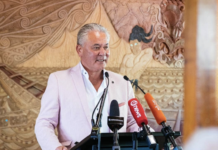The agriculture sector’s plan to avoid the emissions trading scheme relies on band-aid solutions and unproven technologies and neglects the destructive impacts of intensive dairy farming in Aotearoa.
Deer, sheep and beef farms will face the greatest impact from He Waka Eke Noa, which is disproportionate to the impacts of dairy farming on the environment.
SAFE Campaigns Officer Emma Brodie said Aotearoa’s biggest climate polluter shouldn’t get a free pass.
“It is disgraceful to allow Aotearoa’s most polluting industries to dictate their own environmental regulations”
“We are in the midst of a climate emergency, we needed bold action yesterday. This Government must lead the way to ensure the wellbeing of our animals, our planet and that of future generations.”
The dairy industry is the country’s biggest emitter of greenhouse gases, producing more emissions than the transport sector combined. If implemented, He Waka Eke Noa would only reduce methane emissions by between 4 and 5.5 per cent.
Dairy production causes more damage to our waterways than any other industry. Due to Waste run-off and nitrate leaching, 82 per cent of rivers in farming areas are unfit for swimming. Dairy is also responsible for the death of millions of animals every year, many of them only days old.
Recent research from the Intergovernmental Panel on Climate Change (IPCC) shows the global climate catastrophe cannot be averted without a radical shift away from meat and dairy. This week, Governments are being urged to transition to plant-based food as a survival imperative at an international climate summit in Germany.
“Animal agriculture, particularly intensive dairy farming, is simply not compatible with sustainability. We’re calling on the Government to create a plan of action which supports farmers out of the sector into more sustainable farming systems and industries.”
“The only meaningful way to reduce agricultural emissions is to reduce animal agriculture.”






Yes although I suspect that even the majority of readers on this site will not like the thought of having to live without animal food so it will take real pain before people start to accept that there might be a better way to live.